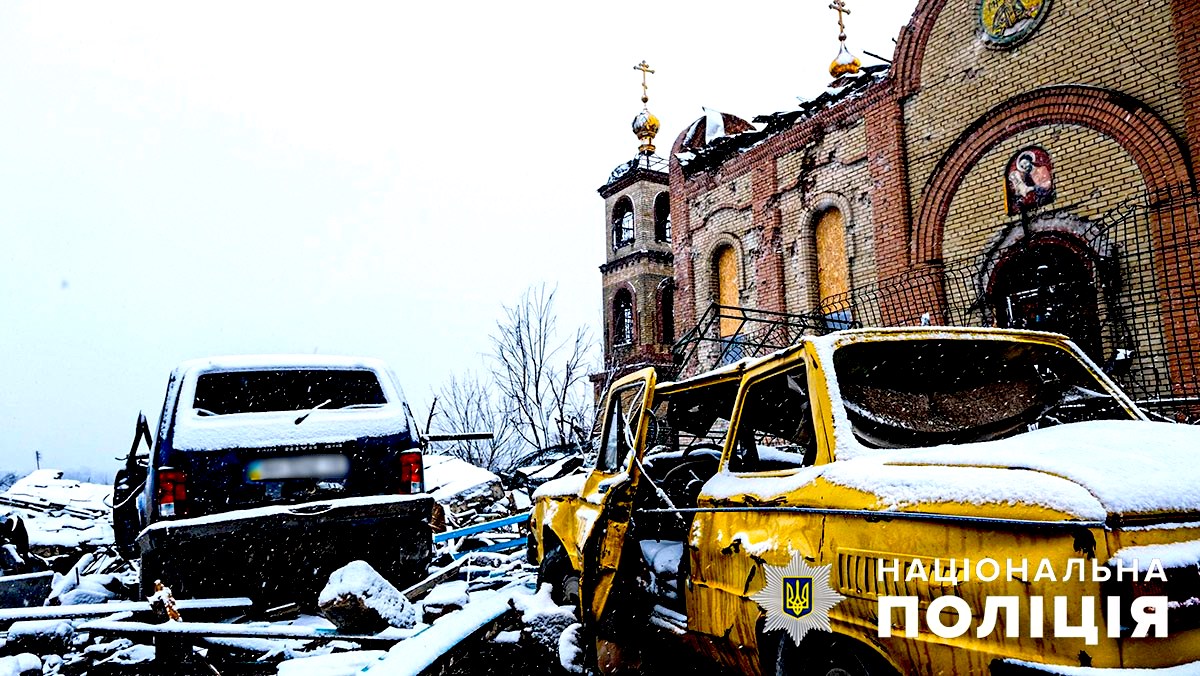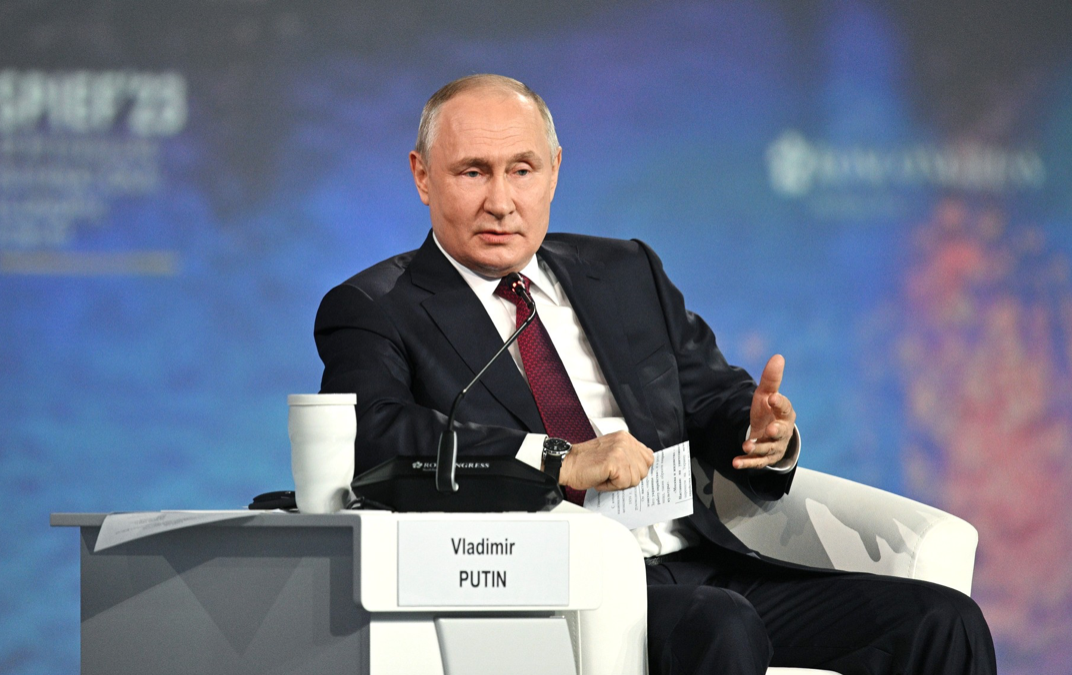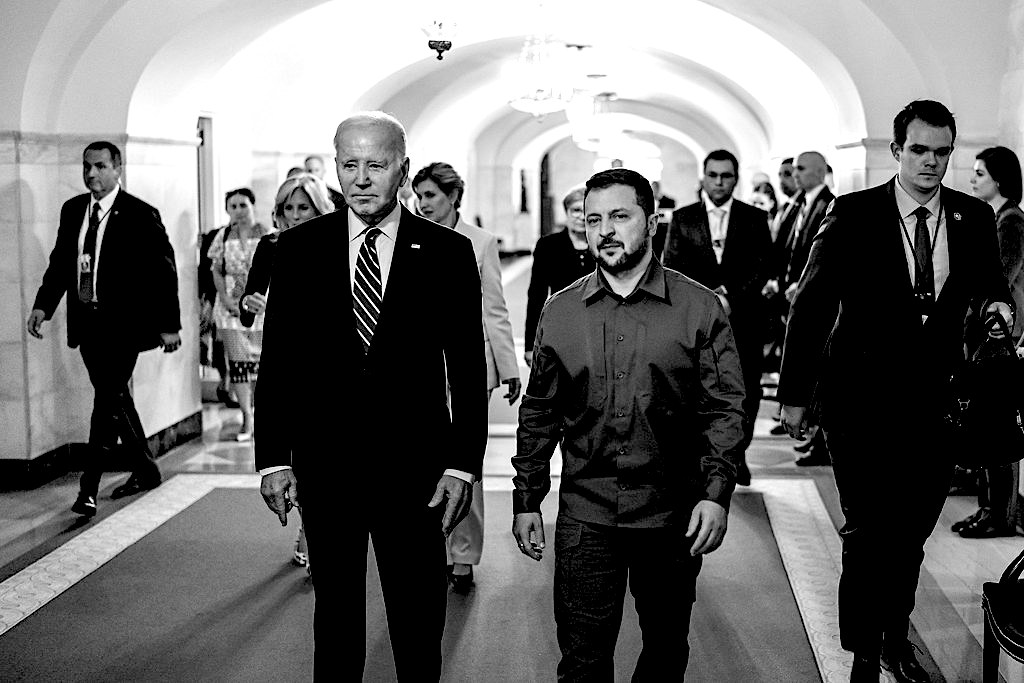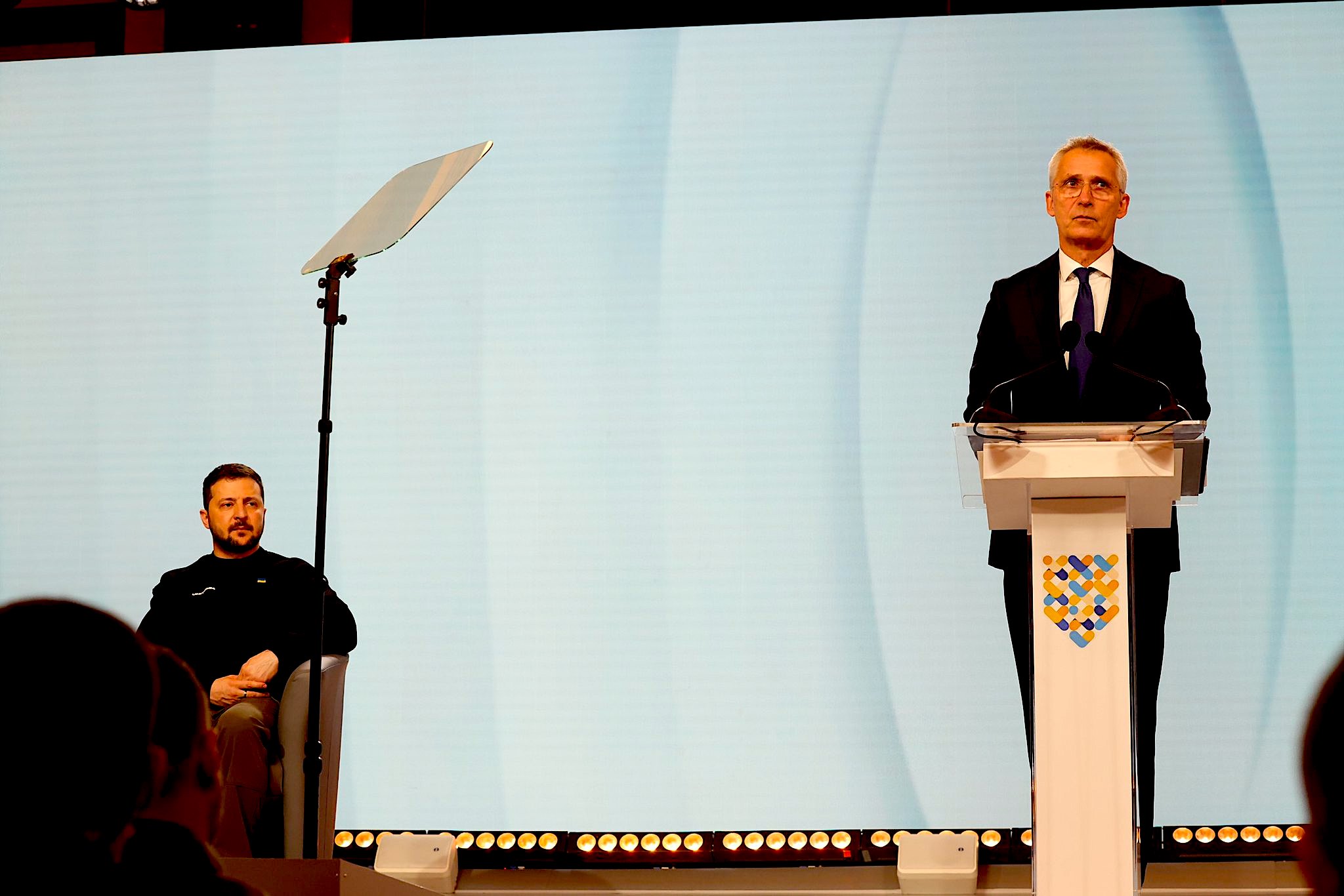By Tony Kevin, Consortium News, 11/7/23
Tony Kevin is a former Australian senior diplomat, having served as ambassador to Cambodia and Poland, as well as being posted to Australia’s embassy in Moscow. He is the author of six published books on public policy and international relations.
There’s been talk in Western media the past week of an alleged “stalemate’” on the Ukrainian battlefront leading to one report quoting U.S. officials saying it’s time for Ukraine to accept it has lost and negotiate with Russia.
Another Western report says a “delusional” Ukrainian President Volodymyr Zelensky is the lone hold out, however, and is refusing to accept defeat.
The Oxford Dictionary definition of stalemate — either in chess, politics or war — does not apply to Ukraine: “A situation in which further action or progress by opposing or competing parties seems impossible.”
As Scott Ritter excellently summed up in Consortium News recently:
“The war in Ukraine is not by this definition in stalemate. The war has definitely gone Russia’s way militarily and politically since September 2022, by every relevant measure.”
Russia has military supremacy over Kiev in terms of men, equipment, manpower reserves, leadership, national morale and capacity to mobilize arms. It is Russia’s choice now whether to launch an autumn offensive, to wait for a winter offensive, or simply to wait for morale to collapse in Kiev in order to generate Moscow’s desired political changes there. In short, Putin now controls the pace of the game.
In hotspots Avdiivka and Kupiansk along the front lines, Russia has shaped the battlefield into “semi-cauldrons” by means of which, as Ritter notes:
“The Russian goal is to put the Ukrainian command in a dilemma, where abandoning Avdiivka could lead to the collapse of morale among the Ukrainian defenders, and staying could lead to a massive loss of life due to the difficulties associated with reinforcing the garrison.”

Saint Michael Church in Avdiivka in the Donetsk region on April 1, 2023, during the battle for the city. (National Police of Ukraine, Wikimedia Commons, CC BY 4.0)
Valery Zaluzhny, commander-in-chief of the Armed Forces of Ukraine, made this assessment to The Economist magazine a week ago:
“General Zaluzhny’s assessment is sobering: there is no sign that a technological breakthrough, whether in drones or in electronic warfare, is around the corner. And technology has its limits. Even in the first world war, the arrival of tanks in 1917 was not sufficient to break the deadlock on the battlefield. It took a suite of technologies, and more than a decade of tactical innovation, to produce the German blitzkrieg in May 1940. The implication is that Ukraine is stuck in a long war—one in which he acknowledges Russia has the advantage. Nevertheless, he insists that Ukraine has no choice but to keep the initiative by remaining on the offensive, even if it only moves by a few metres a day.”
Zaluzhny is trying sensibly to preserve his inexperienced and unfit remaining forces but is under political pressure from Zelensky and NATO not to cede any territory. On Monday Zaluzhny’s close adviser, Major Gennadiy Chastiakov, was assassinated by a booby-trapped birthday gift.
The Ukrainian military have no options left: Russia has plenty. This is a situation where two obviously unequal combatants are waiting for an end, waiting for a military or political resolution to this war.
In the meantime on the battlefield, it is no accident that Ukrainian shelling of Donetsk city from nearby Avdiivka, which has gone on for years, has virtually ceased. Ukrainian supplies to Avdiivka have been choked off by the semi- cauldron there.
Why is Putin Waiting?

Putin on June 16, during the St Petersburg International Economic Forum. (Ramil Sitdikov, RIA Novosti Host Photo Agency, Kremlin)
Primarily for Zelensky’s removal and to see what follows in Kiev. He continues to attach importance to trying to minimise further damage and manpower losses suffered by Ukraine, still part, as he sees it, of the Russian world.
A Telegram blog called UKR LEAKS_eng, by Ukrainian special services’ former officer Vasily Prozorov, offers a wealth of daily detail on how politics in Kiev is entering a quite fluid state, as morale on the front collapses and as Washington prepares a possible case to throw Zelensky to the wolves.

U.S. President Joe Biden walks through the Center Hall at the White House with Zelensky on Sept. 21. (White House, Adam Schultz)
The situation in Kiev would seem to require a scapegoat and a degree of regime change. But will a successor negotiate a realistic peace with Russia or will he try to prosecute the war in a new way? He will have no new military options, resources are exhausted and morale gone.
The Western wonder-weapon cupboard is bare. Terrorism options, e.g., another attack on the Kerch Bridge or a high level political assassination attempt in Russia, are always possible but less likely now. Surely the more sensible people in Kiev e.g. Zelensky’s former media adviser Oleksiy Arestovych are already putting out discreet peace feelers to Moscow.
There is talk that Biden would prefer to maintain the status quo till the U.S. presidential election a year from now. However, only a starry -eyed optimist could expect this shaky political and military situation to be standing in 12 months’ time. Something has got to give.
The NBC and TIME Reports
According to U.S. officials quoted by NBC News, the U.S. has begun broaching the subject of Ukraine accepting it will lose territory to Russia and that it should seriously consider entering into peace talks with Moscow. The report says:
“The discussions are an acknowledgment of the dynamics militarily on the ground in Ukraine and politically in the U.S. and Europe, officials said.
They began amid concerns among U.S. and European officials that the war has reached a stalemate and about the ability to continue providing aid to Ukraine, officials said. Biden administration officials also are worried that Ukraine is running out of forces, while Russia has a seemingly endless supply, officials said. Ukraine is also struggling with recruiting and has recently seen public protests about some of President Volodymyr Zelenskyy’s open-ended conscription requirements.
And there is unease in the U.S. government with how much less public attention the war in Ukraine has garnered since the Israel-Hamas war began nearly a month ago, the officials said. Officials fear that shift could make securing additional aid for Kyiv more difficult. …
Officials also have privately said Ukraine likely only has until the end of the year or shortly thereafter before more urgent discussions about peace negotiations should begin. U.S. officials have shared their views on such a timeline with European allies, officials said.”
But is Russia interested in negotiations at this time, given the battlefield advantage it enjoys? NBC says:
“The Biden administration does not have any indication that Russian President Vladimir Putin is ready to negotiate with Ukraine, two U.S. officials said. Western officials say Putin still believes he can ‘wait out the West,’ or keep fighting until the U.S. and its allies lose domestic support for funding Ukraine or the struggle to supply Kyiv with weapons and ammunition becomes too costly, officials said. “
According to TIME Magazine, such suggestions of being ready to enter peace talks are being resisted in Ukraine’s leadership only by Zelensky himself.
“Zelensky feels betrayed by his Western allies. They have left him without the means to win the war, only the means to survive it.
Zelensky’s stubbornness, some of his aides say, has hurt their team’s efforts to come up with a new strategy, a new message. As they have debated the future of the war, one issue has remained taboo: the possibility of negotiating a peace deal with the Russians. Judging by recent surveys, most Ukrainians would reject such a move, especially if it entailed the loss of any occupied territory.”
No Longer As Long As It Takes

NATO Secretary General Jens Stoltenberg addresses the International Summit of Communities and Regions alongside Zelensky, April 20, 2023. (NATO, Flickr, CC BY-NC-ND 2.0)
Surely expanding the war is no longer a NATO option despite all the previous rhetoric about “as long as it takes.” In their own different ways, more and more EU governments and populations are registering their exhaustion and disenchantment with this lost war.
Those at the helm of the EU and NATO, Ursula von der Leyen, Josef Borrell and Jens Stoltenberg are damaged goods now. Viktor Orban in Hungary has increasing weight and prestige, and Slovakia has a new anti-war government. Poland, Scandinavian countries and the Baltics have fallen silent.
The other big reason Putin may want to wait is the dangerous instability in the Middle East. Strange as it may seem, I suspect Putin may be concerned to not dangerously overburden the weak and erratic decision-makers in Washington.
He may want to give Biden and his advisers some political space to try to rein in Israeli’s Prime Minister Benjamin Netanyahu and get the Gaza humanitarian crisis, now in tragic free fall, under some sort of U.S. control. As pretty much the only adults in the room now, the Russians and Chinese need to handle Biden with consideration and care.
The so-called stalemate in Ukraine therefore is an illusion. It thus suits both Russian and Chinese statecraft to let Ukraine drift for a while.
Putin’s stature in the Global South meanwhile continues to grow. He put out a Nov. 4 statement from the Russian National Security Council, which firmly bells the cat of Washington’s arrogant and reckless global destabilisation, despite its weakening geo-strategic position.
These extracts give the flavour :
- “Various means and instruments, including lies, provocations, sophisticated technologies of psychological and information aggression, are being used against Russia in order to destabilise and polarise our multi-national and multi-faith society.
- The U.S. is losing its grip as a superpower, losing momentum, the world with just one hegemon is collapsing. But the Unites States is not ready to accept this fact; on the contrary, it seeks to extend its dominance, its global dictatorship. By causing chaos, they want to contain and destabilise their opponents.
- The ruling elites of the U.S. and their satellites are sending weapons and money to the conflict zones, including Ukraine and the Middle East. Failing to achieve results on the battlefield, they seek to split us, split Russia from the inside, to weaken our country and spread discord.
- The stronger Russia is, the more consolidated our society is, the more effective our efforts to defend our own national interest and the interests of the peoples who fell victim to Western neo-colonialism.”
Those who wish for a realistic and lasting peace in Ukraine may need to be patient a little longer.
Joe Lauria contributed to this report.